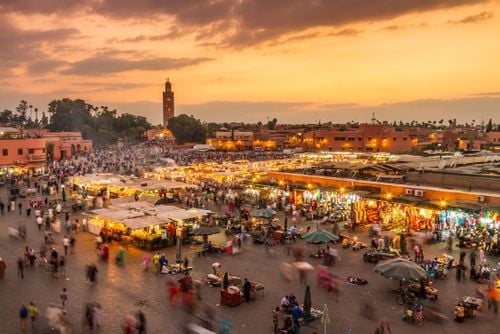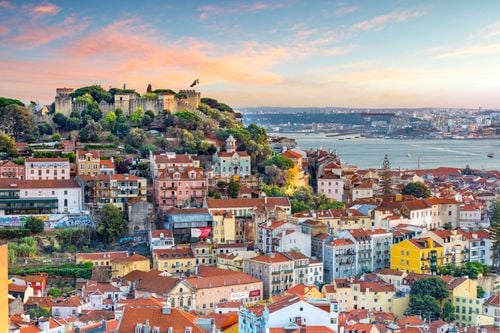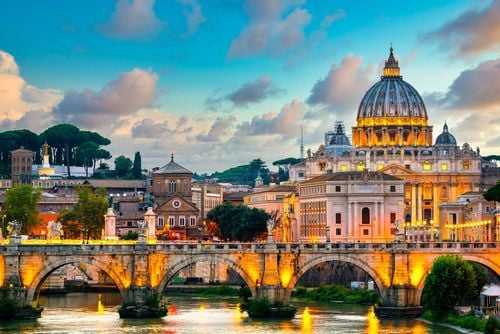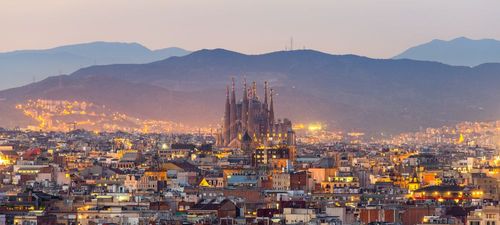A wealth of nature to discover all year round
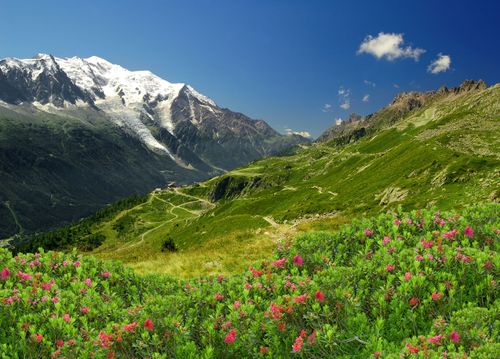
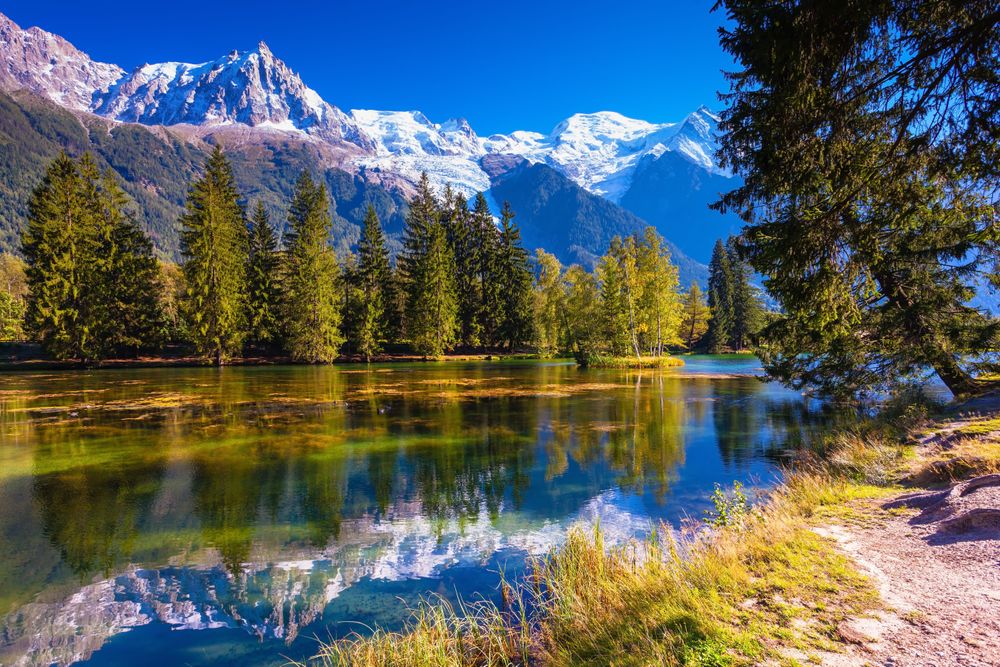
A wealth of nature to discover all year round
With its predominantly mountainous topography, Savoie stands out from other regions with its impressive number of ski resorts. For good reason, 90% of the territory is mountainous. The Alps reign supreme, along with their lesser-known sidekick, the Jura. Although the region is famous for its snow and ski lifts, it is also culturally more deprived. Rich in heritage, culture, traditions, know-how and dazzling nature, this alpine region, immaculate in winter and verdant in summer, has hundreds of wonders to offer. Whether it's a weekend with friends, a family holiday, a gourmet getaway or a sporting adventure, Savoie is 100% outdoors.
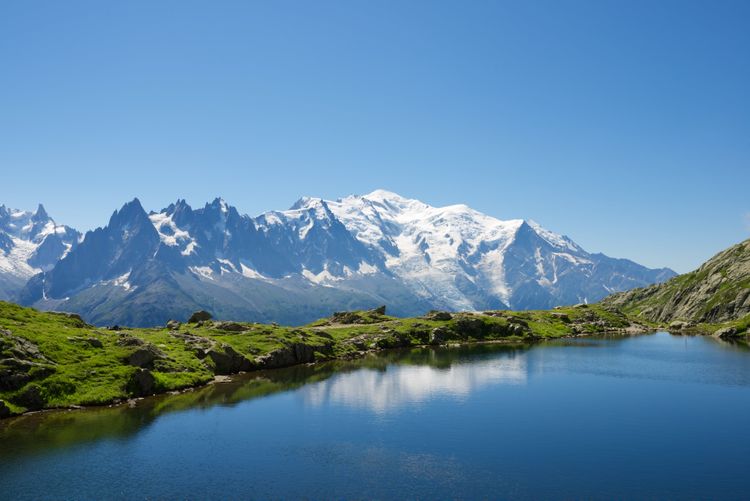
pedrosala / Shutterstock - Mont Blanc reflected on Lake Cheserys in the Alps, France
The Mer de Glace glacier, Mont-Blanc and theAiguille du Midiare just some of the treasures to be found among the region's peaks. Although they adorn the landscape all year round with their majestic eternal white coats, the peaks reveal their true worth in winter. Cross-country skiing, downhill skiing, snowboarding, ice skating and more. There's no end to the activities that can be enjoyed in white snow and opaline ice. These are at the heart of what visitors and locals alike do. After all, Savoie has the largest ski area in the world, with tourists from all over the world sharing the slopes of the 3 Valleys. With 600km of pistes to hurtle down, the resort stretches across Courchevel, Méribel, Val Thorens... All the region's most beautiful towns are within easy gliding distance.
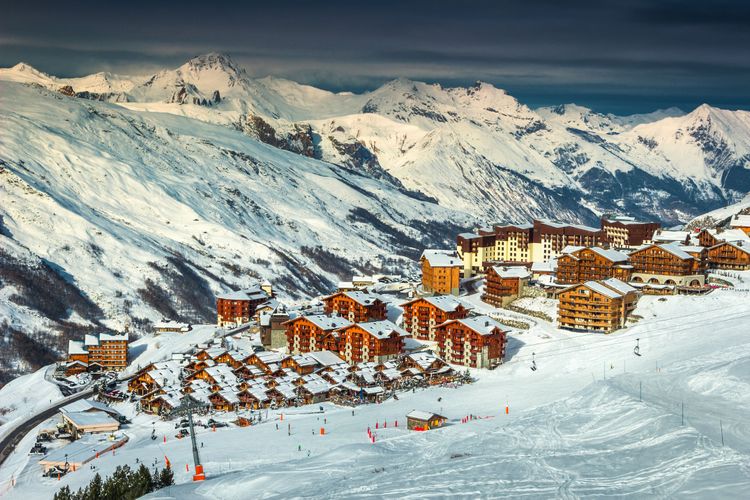
Winter landscape and ski resort with wooden houses typical of the French Alps, Les Menuires, 3 Vallées, France, Europe
- © Gaspar Janos/ShutterstockLake Aiguebelette, with its emerald green surface, and Lac du Bourget, France's largest natural lake, are the region's freshwater treasures in summer. As soon as the first flowers appear in spring, they become playgrounds for kitesurfers, wakeboarders or simply bathers who come to enjoy the calm and pleasant temperature of the water. When the white expanses give way to green plains, it's also a good time to try out Savoie's other numerous summer activities. Hiking and mountain biking can be enjoyed in the mountains and forests of places like the Beaufortain, nicknamed Savoie's Garden of Eden. Here you can admire the serenity of cows grazing on green mountain pastures, as well as other lakes and magnificent views of the Mont Blanc massif.
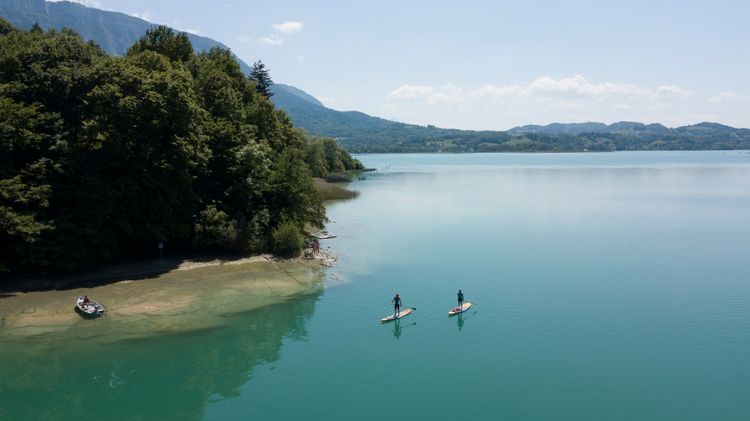
Lake Aiguebelette, Savoie, France
- © SYLVAIN FELTEN/ShutterstockAs the name suggests, these are the same Beaufortain cows that produce the milk needed to make the famous Beaufort, the region's typical hard cheese. Savoie is also famous for all its local produce. These include cheeses such asAbondance, Reblochon and Tomme, as well as charcuterie, spirits, comfort food and, less well known, pastries and sweets. Like all the regions of France, Savoie has its own culinary expertise that is well worth discovering or rediscovering. There's nothing quite like a good dish of melted cheese after a gruelling day in the snow or climbing the peaks.
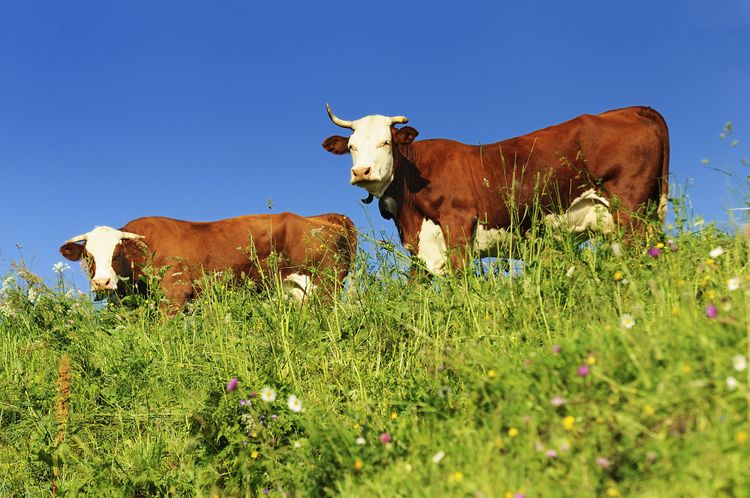
Cow grazing in the Beaufortain, Savoie, France
- © ventdusud/ShutterstockDiscovering a culinary speciality also means visiting the place where it was born. The village of Beaufort, for example, will charm you with its traditional houses and chalets in a bucolic setting. Savoie is full of places like this, which combine culinary history with the history of the region. One of the must-sees is of course Chambéry, the medieval city and capital of the region. But there's also the Fort de l'Esseillon, which protected this once-independent land from Napoleon's attacks. Or the Parc de la Vanoise, France's first national park, which protected the area from the industrial boom of the ski resorts. In all the towns and villages, you can admire the history and typical architecture of Savoie, alongside the many Baroque churches.
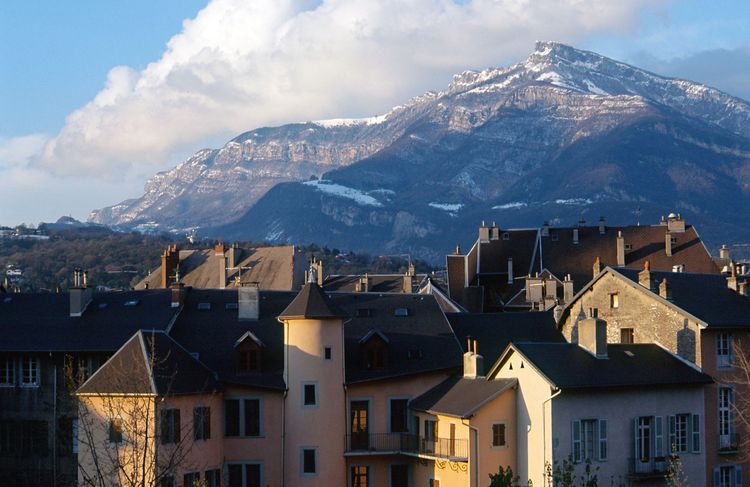
Overview of the town of Chambéry, rooftops, houses and Nivolet mountain, Savoie, France
- © fullempty/Shutterstock
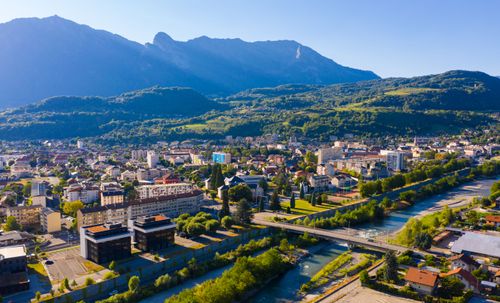
Despite the many bends in the road and the snow that falls, Savoie is very easy to get to by car, thanks to the many tunnels that cross the mountains and the highly efficient road staff. So it's easy to get there by car. You can also get there by train, or by plane from Chambéry or Grenoble airports.
Unfortunately, accommodation is still quite expensive in Savoie, although it is more affordable away from the major towns and resorts. Fortunately, there is no shortage of bargains. In any case, it's hard to deny yourself the pleasure of a magnificent chalet for the duration of your holiday. They come in all shapes and sizes and at all prices. Renting a chalet in large numbers can be very profitable.
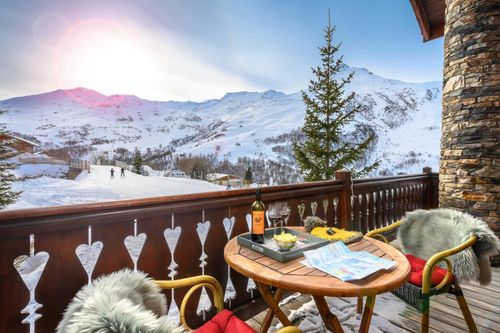
If you want to enjoy the different towns and landscapes of Savoie, it is advisable to come by car or hire one locally to make getting around easier. Being dependent on public transport can slow down your visits and prevent you from enjoying all that the region has to offer.
For both French and foreign nationals, it is essential to carry identification with you. A national identity card, passport or driving licence may be essential for entry to certain places, and may also be useful if you want to benefit from special rates. For those concerned, don't forget your student card.
Throughout the winter, it is compulsory in Savoie to drive with snow tyres or to have snow chains or socks in the car. This applies to all vehicles with four or more wheels.
A tourist tax is added to the price of accommodation per night in Savoie. The higher the star rating of the establishment, the higher the tax. It varies from 0.22 cents for 1-star campsites to €1.60 for 5-star hotels. This additional cost imposed by the Government is multiplied according to the number of nights and the number of people. Depending on the establishment, the tax is included in the initial price or is added by payment at the end of the stay.
You can enjoy Savoie at any time of year. Although the best time to go is at the height of summer and in the middle of winter, the snow can appear earlier or later than expected, as can the sun.
The Savoie region is best explored outdoors, so in both summer and winter, bring a good pair of walking shoes. When it comes to winter equipment, a ski suit is just the thing to make the most of the season's amenities. When it comes to equipment, skis and boots, there are numerous equipment hire companies throughout the region. In summer, don't forget your swimming costume for a dip in the various lakes.
It's hard to choose between all the local specialities. Delicatessen meats and cheeses are sure to find a place in your suitcase. Beaufort cheese is different in winter and summer. An excuse to go back for some during the season you're missing.
If you want to make the most of the snow at a lower cost, it may be worth coming in the spring. The snow may not be as deep, but accommodation prices can be 5 times lower than in February, and you can still ski.
For those who like quiet slopes and the sound of skis on powder, it may be worth including Saturday in your holiday rather than spending it travelling to and from the resort like most tourists. By skiing on this day, you can take advantage of completely clear pistes and why not even benefit from reduced rates on day passes.
explore Try out our comparators
It is Easy to travel
